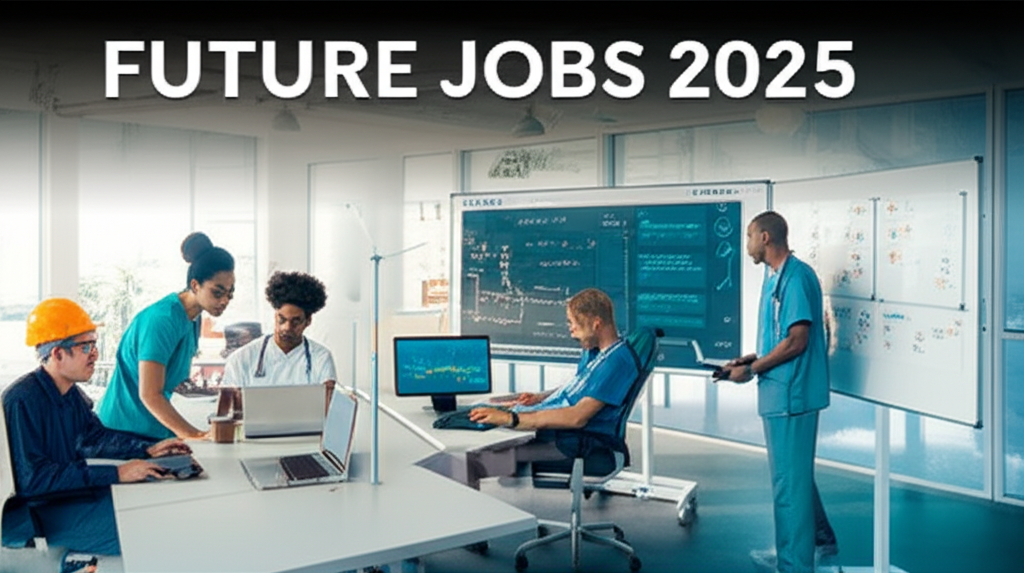As 2025 unfolds, the global job market is undergoing significant transformation driven by technology, shifting economic priorities, and evolving workforce needs. For job seekers and career builders, understanding these latest trends is crucial to staying competitive and securing meaningful employment. This article explores key insights into the 2025 job market, highlighting growth sectors, emerging roles, and strategic advice for career success.
Technology and Data: The Powerhouses of Job Growth
The digital revolution continues to reshape the employment landscape. Roles in data science, artificial intelligence (AI), and software development are among the fastest-growing and most in-demand professions.
Data Science and Analytics
Organizations increasingly rely on data-driven decisions, creating a surge in demand for professionals who can interpret complex data sets and generate actionable insights. The U.S. Bureau of Labor Statistics projects a 35% growth rate for data science roles through 2025. Successful candidates typically hold degrees in computer science or statistics and possess skills in programming, machine learning, and business analytics.
Software Development and AI Specializations
Software developers are evolving into digital architects, designing systems that underpin modern business operations. AI and machine learning specialists are particularly sought after, with many employers planning to hire talent specifically skilled in AI to adapt their business models. Roles such as fintech engineers, big data specialists, and autonomous vehicle experts are also rapidly expanding.
According to the World Economic Forum’s Future of Jobs Report 2025, technology-related roles like AI specialists and software developers are among the fastest-growing, reflecting a broader trend of digital transformation across industries. Employers expect to allocate more revenue to wages for these skilled workers to attract and retain talent.
Frontline and Care Economy Jobs: Growth Beyond Technology
While tech jobs dominate headlines, frontline roles in sectors like construction, delivery, and food processing are also seeing substantial growth. The care economy—including nursing, social work, and personal care aides—is expanding significantly, driven by demographic changes and increased demand for health and social services.
The World Economic Forum highlights that frontline jobs such as farmworkers, delivery drivers, and construction workers will see large absolute growth in employment volume. Similarly, education roles, especially tertiary and secondary teachers, remain vital as societies invest in human capital development.
Labor Market Dynamics: Opportunities and Challenges
Despite overall job growth, the labor market in 2025 shows signs of complexity and unevenness. Economic reports indicate a strong labor market with low unemployment rates around 4.2%, but the distribution of job gains is narrowing. Healthcare continues to be a major driver of new jobs, accounting for nearly half of recent employment growth.
However, traditional office-based and some tech roles have experienced a downward trend in job postings. This signals a concentration of opportunities in specific sectors, making strategic career planning essential.
Hybrid Work and Hiring Trends
Employers are increasingly adopting hybrid work models, blending remote and in-office work to balance productivity and employee preferences. Nearly 90% of employers plan to maintain or increase hiring for new college graduates, reflecting optimism about the talent pipeline despite economic uncertainties.
Entry-level hires are expected to start their careers with some degree of in-person engagement, supporting team integration and skill development. Recruiting strategies have adapted post-pandemic, with many companies leveraging virtual methods alongside traditional approaches to attract diverse talent pools.
Green Jobs and the Energy Transition
The global push for sustainability is creating new career opportunities in environmental engineering, renewable energy, and electric vehicle technology. These roles are among the fastest-growing, reflecting the urgent need for expertise in green technologies and energy transition.
Employers are increasingly prioritizing hiring for these sectors as part of broader corporate responsibility and innovation strategies, signaling promising prospects for professionals passionate about sustainability.
Key Takeaways for Job Seekers in 2025
- Develop tech and data skills: Proficiency in AI, machine learning, software development, and data analytics is critical for future-proofing your career.
- Consider frontline and care roles: These sectors offer robust growth and stability, especially in healthcare and essential services.
- Embrace lifelong learning: Continuous upskilling and adaptability are vital as job requirements evolve rapidly.
- Prepare for hybrid work: Flexibility in work location and collaboration styles will enhance employability.
- Explore green economy jobs: Sustainability-focused roles are expanding and offer meaningful career paths.
In summary, the 2025 job market is marked by a dynamic blend of technology-driven innovation and essential frontline services. Job seekers who align their skills with these trends and remain adaptable will find abundant opportunities to thrive in the evolving workforce.
Source of Info
Original article: BBC News – Job Market Trends 2025

